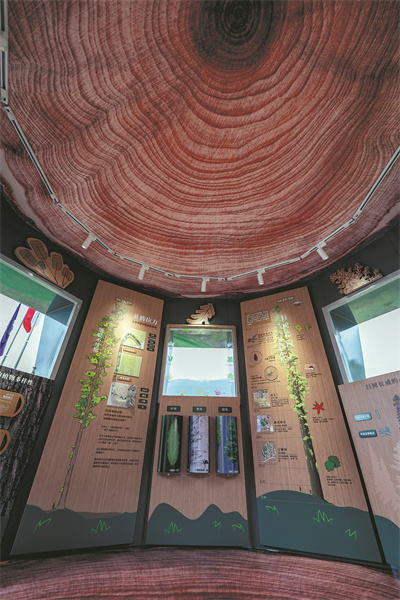Stations give 'paws' for thought
Themed modular structures offer visitors a wealth of information on nature through unique and interactive experiences, Yang Feiyue reports.


Investment in vitality
Many nature stations are in the works across the country, including themes on peach blossoms in Nyingchi and desert animals in the Taklimakan Desert in the Xinjiang Uygur autonomous region.
"We are expecting about 15 nature stations up and running by June," Guo says.
Wang Changbing, general manager of a scenic area investment company in Changji Hui autonomous prefecture, Xinjiang, believes the Chinese National Geography's initiative to build nature stations is "a significant step forward in the integration of the digital and cultural tourism industries".
"Focusing on the application of three-dimensional scenic spaces and human-machine interactions, the initiative not only aids scenic area operations in achieving better economic outcomes but also injects vitality and creativity into the fusion of cultural tourism with other industries," Wang says.
He hopes more nature stations will be built in scenic areas, and cultural tourism enterprises in Xinjiang will soon benefit from this project.
Guo Min, an official in charge of themed postal office by China Post's operations in Beijing, says nature stations represent a new exploration into the integration of transportation and tourism.
"By fully utilizing diverse experiences to convey the energy of local cultural tourism, it creates a wonderful space that is tangible, perceptible and experiential, which enhances a sense of fulfillment, engagement and connection with nature during travel," Guo Min says.
Guo Mingfei, an official from Sansha Nanhai Dream Cruises in Hainan, says she is excited to see how nature stations integrate with local characteristics.
"We eagerly expect the establishment of nature stations on the Xisha Islands, allowing visitors, especially research and study groups, to experience nature firsthand and gain authoritative insights into marine biology, meteorology, and the ecology of reefs and birds," Guo Mingfei says.





































